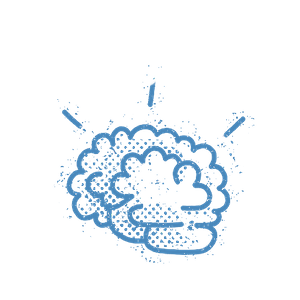Adaptive learning
I have been reading about other uses of cloud based and mobile technologies and I came across some examples of adaptive learning, which I thought were really interesting.
Initially I heard about them from the beloved Radio 4. The two examples I wanted to discuss both come from education and rely on mass adoption by a large remote and distributed community. I suppose you could say they are business to consumer, although that label feels odd for education.
The first instance
The Khan Academy, created by Salman Khan, is the first. The founder wants to provide a world class education, free to anyone in the world. It all started when the founder began making YouTube videos to help a niece with her maths homework. These became increasingly popular, eventually being mentioned by Bill Gates at a huge conference, where he said that they had helped his kids with their maths.
He then realised he could do something really different, focusing on adaptive learning, and founded his educational initiative. The basis of his scheme is to reverse the traditional roles of classwork and homework. Pupils are registered and tracked on his site, given constant assessment based on ability to follow his online classes. The teachers can use this site to monitor the pupils and get feedback. So, the classroom time is taken up with a focus on the needs of individual kids, and teaching is done online from home. In effect, homework is done in class and class work is done at home.
Monitoring the behaviour, the evidence is that kids are less intimidated in this adaptive learning environment. They are able to watch and rewatch the lesson as many times as it takes to understand. In a standard classroom, kids might be left adrift and lost. In the online class, kids are observed to scrub back and watch again.
The kids help each other largely through social interaction in the service. This does not mean that the bright kids are giving the answers out; it is a lot better than that. They actually help each other to learn.
In some cases US schools have adopted this as the bases of entire subjects. If some claims are true, perhaps surprisingly for us in our educational ivory towers, kids in the emerging nations, with this as their only access to education, are outstripping those who are relentlessly pushed though a system little changed from the Victorian model. Probably, the best bet will be found in the combination offered by the US schools example, delivering the best of both worlds.
The second instance
The second example comes from Nolan Bushnell, one of the founders of the 80s game company Atari. His point was simple. Game techniques are complex, quickly learnt, and kids then play for hours. It is more than just making a game fun, it is about making a game broadly fulfilling.
He decided to apply this to learning, creating a company called BrainRush. He came up with a simple game that allowed you to learn the name, geographical shape and location of all the countries in Africa. The game offers a shape to recognise or a name to place on a map. I am not sure how long it would take me to learn this reliably from an atlas, but a while, and if the test was next week, I wonder how much I would retain… In the game, 15-30 minutes seems to be enough.
Bushnell added more social aspects, building in game rewards, tables and collaboration. These seemingly trivial items, like badges or ranks, seem to have a disproportionate effect on commitment to succeed.
Expanding this further he undertook a huge study with 20,000 language students. Half were learning Spanish vocabulary via the game and the others took a normal high school course. In a final test, the conventional students were able to demonstrate a vocabulary of 200-300 words. The game aided set were able to handle 2000-3000 words.
Nolan Bushnell claims that applying this, fact-based learning can be significantly compressed. He goes on to say that using the techniques to take on all the facts we typically learn at school would allow us to recall all of it with just a half-hour refresher a week.
The summary
These are both an indication of how the world is changing. The next generation already assume that computers just work. They will no longer care about the location of data, services and possibly even social relationships. Identity and ensuring access to your information is key. Perhaps it is time for us to all realise that the lessons of a collaborative service, available from anywhere are clear!
Actually, before I close, I do have one other interesting example from Maersk. They have a game, ‘The Quest For Oil‘, that introduces the basic roles for oil exploration. Give it a go – it is worth a look. Also, if you manage to get over the million barrels target in the North Sea do get in touch and share your tactics because, so far, I can only get to 900k before the game wins, and it starting to make me think more carefully about how to beat it… 😉
